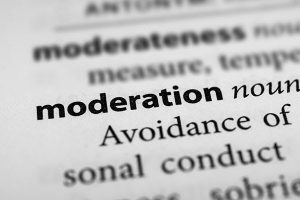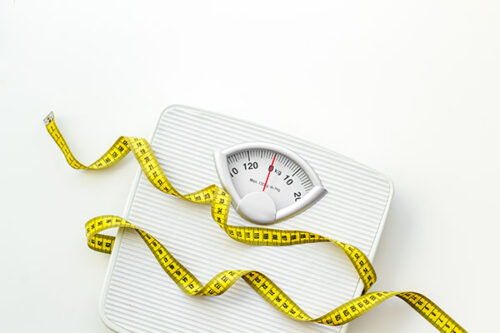Favorite 5 Articles from the July 2005 Newsletter
My Favorite 5 Articles Found in Recent Medical Journals
The Only Way to Lifelong Weight Loss
Long-term weight loss maintenance by Rena Wing in the July 2005 issue of the American Journal of Clinical Nutrition provides the latest report on the findings of the National Weight Control Registry. This compilation consists of people who have successfully lost weight. The average weight lost by more than 4000 members of the Registry is 33 Kg (72.6 pounds) and that loss has been maintained for an average of 5.7 years. The demographics are: 77% women, 82% college-educated, 95% Caucasian, and 64% married. The average age at entry to the registry is 46.8 years. Eighty-nine percent reported using both diet and physical activity for weight loss; only 10% reported using diet only, and 1% reported using exercise only for their weight loss. The most common dietary strategies for weight loss were to restrict certain foods (87.6%), limit quantities (44%), and count calories (43%).
Six key approaches for long-term success at weight loss were identified:
1) Engaging in high levels of physical activity
2) Eating a diet that is low in calories and fat
3) Eating breakfast
4) Self-monitoring weight on a regular basis
5) Maintaining a consistent eating pattern
6) Catching slips” before they turn into larger regains
Initiating weight loss after a medical event may also help facilitate long-term weight control.
Comments:
As the National Weight Loss Registry demonstrates, many people have independently discovered principles similar to ours. I describe the McDougall Program as “a permanent, painless, effortless, highly-effective weight loss program.” I would like to expand on the principles described in this paper and explain how they apply to you following the McDougall Program.
1) Engaging in high levels of physical activity
With our program we encourage you to adopt a physical activity you enjoy. Walking works well for most people. Note, only 1% of people with the National Weight Control Registry used exercise alone for their results; so obviously, without the foundation of a healthy low-fat diet, successful weight loss is nearly impossible. At our live-in program we begin with a guided morning walk, then one hour of trainer-supervised, land- or pool-based exercise before lunch, and also yoga some afternoons. A modern full-facility athletic club is on site for program participants’ use. Several hours of exercise-oriented lectures are provided.
2) Eating a diet that is low in calories and fat
Registry participants consumed, on average, 24% of their calories from fat. The less fat consumed the easier it is to lose weight for three reasons:
1) Fat is concentrated in calories (9 calories/g vs. 4 calories/g for carbohydrate)
2) Fat is effortlessly stored in the body (carbohydrate is difficult to store)
3) Fat provides little appetite satisfaction (carbohydrate satisfies the appetite)
The McDougall Program diet is, on average, 7% fat – and just as important, the diet is plentiful in “calorie dilute – difficult to store – appetite satisfying” carbohydrates (70% to 85% of calories) from unprocessed plant foods. Twice as many people (87.6% vs. 44%) from the National Weight Control Registry used careful food selection as opposed to restricting the amount they ate. Making the right choices is the key to permanent effortless weight loss. Never being hungry is the most attractive feature of the McDougall Program.
3) Eating breakfast
At our live-in program we serve a hearty breakfast, as well as unrestricted portions of delicious foods for lunch and dinner, and encourage frequent eating with snacks provided all day long. People who eat frequently (graze) lose weight more effectively than those who eat less often (gorge).
4) Self-monitoring weight on a regular basis
Some people fear the scale and don’t weigh themselves often. At our program we encourage daily weigh-ins when Mary McDougall meets with them each morning. This feedback provides instant rewards, helping people stay focused.
5) Maintaining a consistent eating pattern
The National Weight Loss Registry reported that participants who followed a consistent diet across the week were 1.5 times more likely to maintain their weight within 5 lb. over the subsequent year than participants who dieted more strictly on weekdays and were lax on the weekends. People on the McDougall program are given definite guidelines as to which foods support health and they are expected to make these their basic meal plan. Going off the program is called “feast days.” With this clear set of rules, people can choose those few days they will feel sick and gain some weight.
6) Catching “slips” before they turn into larger regains.
The National Weight Loss Registry reported few people recovered from even minor lapses (11%) and people who gained the most weight during a relapse were least likely to re-lose during the following year. The McDougall Program encourages people to be strict, because indiscretions with food, just like indiscretions with alcohol, tobacco, and drugs, can quickly lead to a return to old habits. We also keep close contact with people after they leave us and arrange follow-up meetings during 10-day sessions, at weekend seminars, and Adventure Vacations. These personal contacts put them right back on track when they have “slips.”
Lastly, events, such as a medical problem or reaching an all-time high in weight, often trigger the start of a successful weight loss program. Most of the people who attend the McDougall Program have health problems and being overweight is a common one. (A few people come simply wanting to learn how to maintain their excellent health). Fortunately, a low-fat, plant-food based diet and moderate exercise go hand in hand with solving almost all of their medical problems, with effortless weight loss as a fringe benefit.
To learn more, see the detailed information on the weight loss part of the McDougall Program in the newsletter archives (www.drmcdougall.com):
December 2004: Lose a Half Pound a Day – Setpoint
January 2005: Pushing Your Setpoint to the Limits
The McDougall Program for Maximum Weight Loss
Wing RR, Phelan S. Long-term weight loss maintenance. Am J Clin Nutr. 2005 Jul;82(1):222S-5S.
Neither Aspirin Nor Vitamin E Will Save Women
The Women’s Health Study evaluated the effects of low doses of aspirin (100 mg every other day) and vitamin E (600 IU every other day) for the prevention of heart disease or strokes and cancer in nearly forty thousand healthy female healthcare professionals in the United States over a decade. They found low dose aspirin has no effect in preventing cancer and vitamin E does not reduce the risk of cancer or cardiovascular disease. The results appeared in the July 6, 2005 issue of the Journal of the American Medical Association.
The official conclusions were:
Primary Prevention of Cancer. The Women’s Health Study: A Randomized Controlled Trial by Nancy R. Cook found “Results from this large-scale, long-term trial suggest that alternate day use of low-dose aspirin (100 mg) for an average 10 years of treatment does not lower risk of total, breast, colorectal, or other site-specific cancers.”
Vitamin E in the Primary Prevention of Cardiovascular Disease and Cancer. The Women’s Health Study: A Randomized Controlled Trial by I-Min Lee concluded “The data from this large trial indicated that 600 IU of natural-source vitamin E taken every other day provided no overall benefit for major cardiovascular events or cancer, did not affect total mortality, and decreased cardiovascular mortality in healthy women. These data do not support recommending vitamin E supplementation for cardiovascular disease or cancer prevention among healthy women.” Her group added, “This large trial supports current guidelines stating that use of antioxidant vitamins is not justified for CVD risk reduction.”
From a practical viewpoint the most important statement from these researchers was, “At present, in the primary prevention of CVD and cancer, therapeutic lifestyle changes including a healthy diet and control of major risk factors remain important clinical and public health strategies.”
The aspirin was provided by Bayer HealthCare and the vitamin E was provided by the Natural Source Vitamin E Association. Obviously, these companies hoped for more favorable outcomes – and one vitamin E manufacturer tried to “make lemonade out of sour lemons.”
That’s right, “you make the choice” between buying useless and possibly dangerous vitamin pills and fattening the pockets of the “natural drug industries,” or spending your money on efforts that really do work, like cost-free, side-effect-free, plant-food based nutrition, moderate exercise, and clean habits. The bulk of the evidence to date from the highest quality research shows no important benefit of vitamin E supplementation on the risk of developing heart disease or cancer and some very reliable studies indicate these supplements may increase your risk of dying sooner. An excellent article reviewing the harmful effects of vitamin supplementation and the benefits of plant food-sources of these nutrients can be found in the July 20, 2005 issue of the Journal of the American Medical Association. Also see my November 2004 newsletter article: “Vitamins Do Not Prevent Cancer and May Increase Likelihood of Death: How Supplements Can Make You Sicker.”
A baby aspirin a day may reduce the risk of stroke, but has no benefits for reducing the risk of heart attacks for otherwise healthy women and also increases the risk of gastrointestinal (stomach) bleeding which may require a blood transfusion. I recommend a baby aspirin a day in men and women who have a very high risk of a heart attack or stroke in the very near future; such as those with a history of bypass surgery, angioplasty, heart attack, TIA or a stroke.
The authors of an accompanying editorial explained, “it is unrealistic to expect the discovery of an agent that will produce substantial reductions in overall cancer rates in the immediate future.” Many people are holding out for the next miracle drug that will save them from themselves. The truth is that wonder drug is here now and those of us not living in a world of hopes and dreams are taking real steps to make our lives as long and enjoyable as possible with a healthy diet and lifestyle.
1) Cook NR, Lee I-M, Gaziano JM, et al. Low-dose aspirin in the primary prevention of cancer: the Women’s Health Study: a randomized controlled trial. JAMA. 2005;294:47-55.
2) Lee I-M, Cook NR, Gaziano JM, et al. Vitamin E in the primary prevention of cardiovascular disease and cancer: the Women’s Health Study: a randomized controlled trial. JAMA. 2005;294:56-65.
3) Lichtenstein AH, Russell RM. Essential nutrients: food or supplements? Where should the emphasis be? JAMA. 2005 Jul 20;294(3):351-8.
4) Jacobs E, Thun M. Low-Dose Aspirin and Vitamin E: Challenges and Opportunities in Cancer Prevention. JAMA. 2005;294:56-65.
Coffee Damages Artery Function – Another Mechanism for Heart Disease
Chronic coffee consumption has a detrimental effect on aortic stiffness and wave reflections by Charalambos Vlachopoulos in the June 2005 issue of the American Journal of Clinical Nutrition found, “Chronic coffee consumption exerts a detrimental effect on aortic stiffness and wave reflections, which may increase the risk of cardiovascular disease.” This study shows that coffee causes its ill effects by impairing the function of the arteries, which increases the risk that these blood channels supplying the heart muscle will be compromised, leading to a heart attack.
Comments:
The results of studies on the effects of coffee drinking on the risk of death from heart disease are conflicting; however, the evidence seems to indicate that at high levels of consumption this popular drug is detrimental. Besides the manner of harm found in this study, other mechanisms may account for more heart disease in coffee drinkers. There are two substances found in coffee beans, cafestol and kahweol, which raise total cholesterol, “bad” LDL-cholesterol and triglycerides. On average, cholesterol is increased by 10%; but very potent boiled coffee can raise total cholesterol by as much as 23% (that could mean a 50 mg/dl increase for someone starting with an average cholesterol of 210 mg/dl). Triglycerides may be increased by a similar amount. Coffee will raise the systolic blood pressure (top number) by 5 to 15 mmHg and the diastolic (bottom number) by 5 to 10 mmHg. People who are heavy coffee drinkers may also have a tendency to abuse themselves in other ways, such as consuming more heart damaging, high-fat, high-cholesterol foods.
Coffee drinking rightly deserves its reputation as “a bad habit.” For more help with this addiction please refer to two previous newsletters found in my archives: July 2004: Coffee – Pleasure or Pain, and October 2004: Tea Time Increases Life Time.
1) Vlachopoulos C, Panagiotakos D, Ioakeimidis N, Dima I, Stefanadis C. Chronic coffee consumption has a detrimental effect on aortic stiffness and wave reflections. Am J Clin Nutr. 2005 Jun;81(6):1307-12.
2) Urgert R, Katan MB. The cholesterol-raising factor from coffee beans. Annu Rev Nutr. 1997;17:305-24.
3) James JE. Critical review of dietary caffeine and blood pressure: a relationship that should be taken more seriously. Psychosom Med. 2004 Jan-Feb;66(1):63-71.
Low-Fat, Low-Protein Diet Prolongs Life
Calories do not explain extension of life span by dietary restriction in Drosophila by William Mair in the July 2005 issue of the PLoS Biology journal found, “Dietary restriction is often known as calorie restriction, because it has been suggested that reduction of calories, rather than of particular nutrients in the diet, mediates extension of life span in rodents. We here demonstrate that extension of life span by dietary restriction in Drosophila is not attributable to the reduction in calorie intake.”
For this study researchers divided fruit flies into four groups and put them on different diets.
1. The control group got the standard fruit fly lab meal of yeast, which contains protein and fat, and sugar. 1200 calories per liter.
2. The calorie restricted experimental group was fed a calorie-restricted diet, with equal amounts of yeast and sugar. 520 kilocalories per liter.
3. The higher fat and protein experimental group was fed more yeast than sugar. 860 kilocalories per liter.
4. The lower fat and protein experimental group was fed more sugar than yeast. 860 kilocalories per liter.
The results were: the flies on the calorie-restricted diet (group 2) lived the longest – 82% longer compared to the controls. But the flies on the higher calorie diet (group 4) with reduced protein and fat intake (yeast) did very well too; increasing their lifespan by nearly 65%. Eating less sugar (group 3) increased longevity by only about 9%. This study overturned the long-held belief that the key ingredient for longevity was simply calorie reduction – from any source. The answer for a long-life comes more from restriction of specific nutrients – fat and protein – rather than just starving.
In many animals the restriction of food has resulted in a prolongation of their life span. This is a “species survival mechanism” at work; during times of famine, resources are diverted away from reproduction towards maintenance of the body, which will increase the chances of an organism surviving through the times of food scarcity, thereby increasing chances for future reproduction and species survival.
I believe the McDougall diet is your best chance of a long, healthy life because it effortlessly restricts calories, fat and protein by its natural composition. Switching from meat, dairy and processed foods to starches, vegetables, and fruits will – without any conscious effort – cause you to consume 400 to 700 fewer calories a day without restricting the amount of food you eat. You can expect your fat intake to decrease from 40% to 7% and protein from 20% to 12% of calories by simply making better food choices and you don’t have to ever be hungry – now THAT is a program you can live with.
1) Mair W, Piper MD, Partridge L. Calories do not explain extension of life span by dietary restriction in Drosophila. PLoS Biol. 2005 Jul;3(7):e223. Epub 2005 May 31.
Recommended Articles

The Myth of Moderation: Do All Foods Really Fit?

Mary's Mini-McDougall Diet® - Answers to Common Questions






